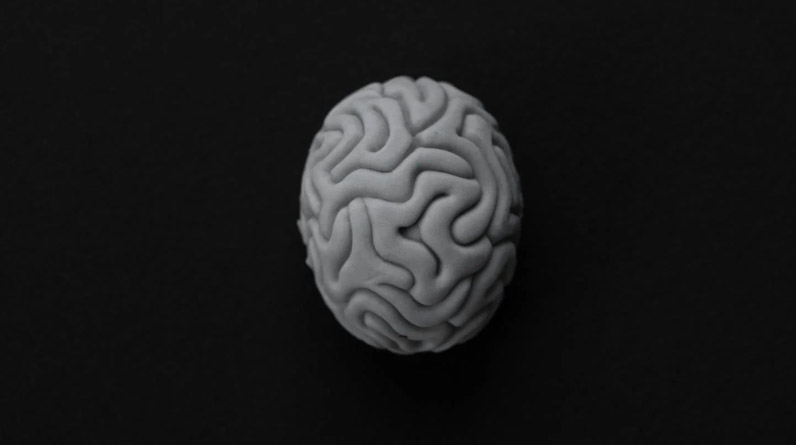Introduction
Traumatic brain injury (TBI) is a type of brain injury that can occur due to a sudden blow or impact to the head or body. It is a serious medical condition that requires immediate attention and can lead to long-term physical, cognitive, and emotional complications. Understanding the recovery time for TBI is essential for patients and their families to help them plan and prepare for the rehabilitation process. In this article, we will discuss the types and severity of TBI, factors affecting recovery time, estimated recovery times, challenges and complications in recovery, and rehabilitation and treatment options.
Types and Severity of Traumatic Brain Injuries
TBI can be classified into three types based on the severity of the injury: mild, moderate, and severe. A mild TBI, also known as a concussion, is the most common type of TBI and typically occurs when there is a brief loss of consciousness or disorientation after a head injury. A moderate TBI occurs when there is a more extended period of unconsciousness or amnesia, and a severe TBI occurs when there is an extended period of unconsciousness or coma.
The severity of the injury can affect the recovery time, with mild TBI typically having the shortest recovery time and severe TBI taking the longest. However, other factors such as age, overall health, type of injury, and treatment can also impact the recovery time.
Factors Affecting Recovery Time
Age: Older individuals may take longer to recover from a TBI than younger individuals due to age-related changes in the brain.
Overall Health: Individuals with pre-existing medical conditions or a weakened immune system may experience a longer recovery time than those who are otherwise healthy.
Severity of Injury: As mentioned earlier, the severity of the injury can significantly impact the recovery time. Individuals with severe TBI may require an extended period of rehabilitation and may have long-term complications.
Type of Injury: The location of the injury in the brain can also affect the recovery time. For example, injuries to the frontal lobe can impact decision-making, while injuries to the parietal lobe can affect sensation and perception.
Treatment and Rehabilitation: The type and quality of treatment and rehabilitation can significantly impact the recovery time. Proper treatment can help reduce the severity of the injury and prevent long-term complications.
Stages of Recovery
The recovery process for TBI can be divided into three stages: acute, subacute, and chronic. The acute stage typically lasts for the first few days to weeks after the injury and involves emergency medical treatment, stabilization, and monitoring of the individual’s condition. The subacute stage can last for several weeks to months and involves medical management and rehabilitation to improve physical and cognitive function. The chronic stage can last for several months to years and involves ongoing rehabilitation to manage any long-term complications.
Also read: traumatic brain injury recovery stages
Factors Affecting Each Stage
During the acute stage, the focus is on stabilizing the individual’s condition and preventing further damage to the brain. The severity of the injury and the type of medical intervention required can significantly impact the length of the acute stage.
The subacute stage is a critical period for rehabilitation and recovery. The type and intensity of rehabilitation, as well as the individual’s overall health and response to treatment, can impact the length of the subacute stage.
The chronic stage involves ongoing rehabilitation and management of any long-term complications. The individual’s response to treatment and the severity of any long-term complications can impact the length of the chronic stage.
Estimated Recovery Times
The estimated recovery time for TBI can vary depending on the severity of the injury, the age and overall health of the individual, and the type and quality of treatment and rehabilitation. Recovery times for TBI can range from a few weeks to several years.
Mild TBI: Individuals with a mild TBI typically recover within a few days to weeks with rest and avoiding activities that could worsen their symptoms. In some cases, individuals may require additional rehabilitation to address any persistent symptoms.
Moderate TBI: Individuals with a moderate TBI may take several weeks to months to recover fully. During this time, they may require intensive rehabilitation to address any physical, cognitive, or emotional complications.
Severe TBI: Individuals with a severe TBI may require an extended period of rehabilitation, often lasting several months to years. During this time, they may require comprehensive rehabilitation to address any long-term complications.
Statistics and Case Studies
According to the Centers for Disease Control and Prevention (CDC), approximately 2.8 million people in the United States experience a TBI each year, with the majority of these being mild TBIs. Recovery times for TBI can vary widely, with some individuals experiencing a full recovery while others may have long-term complications.
Case studies have shown that factors such as age, severity of the injury, and quality of treatment can significantly impact recovery time. For example, a study published in the Journal of Neurotrauma found that older adults with severe TBI had a significantly lower likelihood of making a good recovery compared to younger adults with the same severity of injury.
Challenges and Complications in Recovery
Recovery from TBI can be challenging and may involve physical, cognitive, and emotional complications. Physical complications may include headaches, dizziness, balance problems, and difficulties with coordination and mobility. Cognitive complications may include difficulties with memory, attention, and problem-solving, as well as changes in behavior and personality. Emotional complications may include depression, anxiety, irritability, and mood swings.
Strategies for Coping
Individuals with TBI and their families may benefit from several strategies to help cope with the challenges of recovery. These may include seeking support from family and friends, engaging in physical and mental activities that promote recovery, and seeking professional counseling or therapy.
Rehabilitation and Treatment Options
Rehabilitation and treatment options for TBI may include a combination of medical and rehabilitation interventions. Medical interventions may include surgery, medication, and other treatments to stabilize the individual’s condition and prevent further damage to the brain. Rehabilitation interventions may include physical therapy, occupational therapy, speech therapy, and cognitive rehabilitation to help improve physical and cognitive function.
Conclusion
TBI is a serious medical condition that can significantly impact an individual’s physical, cognitive, and emotional well-being. Understanding the recovery time for TBI is essential for individuals and their families to plan and prepare for the rehabilitation process. Recovery times for TBI can vary widely, depending on the severity of the injury, age and overall health of the individual, and the type and quality of treatment and rehabilitation. With proper treatment and rehabilitation, many individuals with TBI can make a full recovery or manage any long-term complications.



